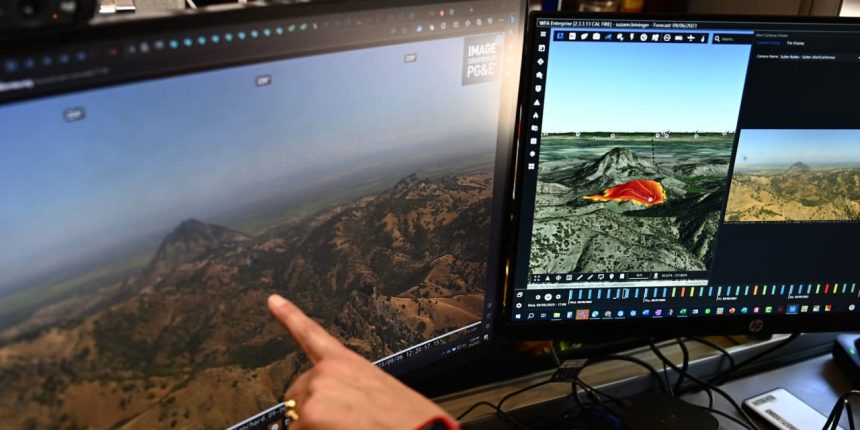About the author: Christian Klein is CEO and member of the executive board of SAP SE.
The need to tackle global issues such as climate change, health crises, and food security has never been more urgent. Given that the available resources—human and financial—are increasingly constrained, we need to think beyond “business as usual” in order to drive real and lasting positive change.
Artificial Intelligence offers us a tool to do exactly that. It can play a key role in helping the world run better and improve people’s lives. AI could add trillions of dollars in value to the global economy, according to a recent study by McKinsey. That boost would be especially welcome against the backdrop of slowing productivity growth.
Much of the excitement around generative AI is centered on its impact on consumer-focused applications. But applied reliably, responsibly, and in a relevant context, this technology can positively influence many other fields as well. Just consider that, in view of rising staffing shortages in the public sector, AI holds great promise with regard to improving the quality of government services—the “G2C” dimension, for government to citizen.
Toward the Intelligent Enterprise
First and foremost, though, AI will have a revolutionary impact on the entire business landscape. It will reshape everything—from logistics and customer service to HR, finance, and sustainability.
Today’s operating reality for many organizations is complex. Supply chains can span thousands of business partners. Data exists within silos that prevent real-time insights. Demographic change is driving staffing shortages. The powerful capabilities of generative AI, however, are already enabling businesses to find solutions to complex challenges. We will see digital assistants respond to natural language questions such as “how can I reduce my carbon emissions by 5% without compromising on productivity?” with insights and actionable recommendations. Automatically generated code will bring new software features and functions to life, helping businesses transform quickly and easily. These self-learning processes will help companies remain agile and navigate their way through the ups and downs of uncertain times.
Process optimization
The power of generative AI in business starts to become even clearer when we imagine a world where companies operate in networks, all using and benefitting from this technology. Having 360-degree transparency across entire supply chains based on real-time data provides businesses with the flexibility and resilience to navigate even in the most dynamic environments. Generative AI can not only anticipate risks but also proactively avoid disruption. When bad weather or accidents strike, for example, AI can automatically choose the most efficient route for trucks to take.
Ultimately, collaboration and intelligent networks are at the heart of the solutions to our global challenges. This is especially critical with regard to reducing CO2 emissions. Today, recording accurate carbon emission data remains a resource-intensive challenge. In the future, AI will automatically collect and efficiently analyze this data, enabling companies to take concrete climate action.
The future of work
For all the great promise of AI, there are legitimate concerns. As with other technological revolutions, the impact on jobs will not be insignificant. At the same time, we need to be aware that there will be an estimated shortage of 85 million workers around the globe by 2030. This could result in $8.5 trillion in unrealized annual revenues worldwide—more than the GDP of the UK and Germany combined.
In many areas, we can expect generative AI to enhance present jobs or create new roles. After all, 60% of workers today are engaged in occupations that didn’t exist in the middle of the 20th century, according to a report by MIT economist David Autor. Moreover, generative AI can help in the upcoming transition by recommending personalized training programs or helping organizations formulate job descriptions quickly and easily.
Getting the rules right
With its strong manufacturing traditions, Europe has a huge opportunity to lead in the application of industrial AI. This not only has the potential to boost Europe’s future competitiveness but would also be a fitting antidote to the talk of deindustrialization that is taking hold in some corners of the European continent. For that to happen, however, it is crucial to balance the promise of AI with its risks. Brussels is still negotiating the European Union AI Act. As it is now, the legislation risks stifling innovation. Adopting some of the U.S.’s “can-do” spirit could help the EU strike the right balance between innovation and proper safeguards.
There are many open questions about AI that have still to be answered. But looking ahead, I firmly believe technology is at the heart of progress. Generative AI’s powerful capabilities will help us make significant progress on solving the challenges facing the world today.
Guest commentaries like this one are written by authors outside the Barron’s and MarketWatch newsroom. They reflect the perspective and opinions of the authors. Submit commentary proposals and other feedback to [email protected].
Read the full article here




